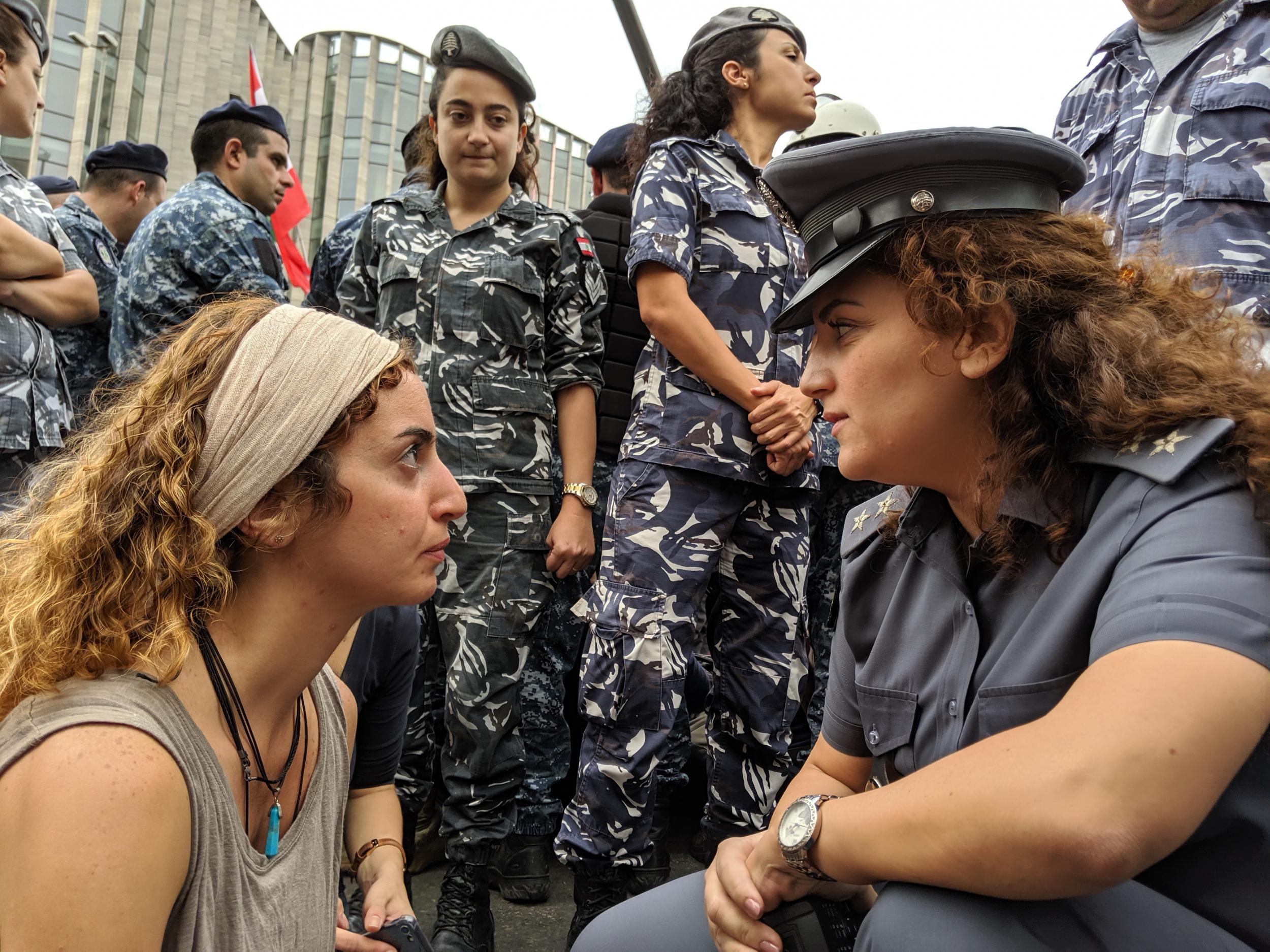In Lebanon, a woman’s place is leading the revolution
In a political system where women are chronically underrepresented, women are making themselves heard in the streets, reports Richard Hall


Anti-government protests that have swept across Lebanon over recent weeks have been notable for their lack of leaders, but they have not been without leadership.
On the front of marches and discussion groups, sit-ins and roadblocks, women have been a key driving force behind the movement. In a political system where women are chronically underrepresented, they are making themselves heard in the streets.
“Women have been such an important part of this revolution,” says Mariana Wehbe, a public relations consultant, who has been protesting every day. “We have been on the front lines, we have been empowering each other and we have kept the peace.”
On Wednesday evening, Wehbe organised a women’s candlelit vigil in the city’s main square, attended by thousands. It was a poignant moment, but the role of women in these protests has been more than symbolic; it has dramatically altered their character and direction.
One of the most enduring images of the protests was taken on the first night, during a scuffle between a cabinet minister’s bodyguards and protesters. As one of the guards brandished a gun, a woman named Malak Alaywe delivered a swift kick to his groin.
The image of a woman lashing out at this representation of the country’s corrupt and patriarchal political class instantly became a meme, stylised in an illustration, and appeared to quickly become a major catalyst in bringing more people out on to the streets.
But the biggest impact women have had on the protests is making them more peaceful.
The first two nights of demonstrations were marked by violent clashes between police and protesters that continued deep into the night. But on the third evening, a group of women decided to form a human shield to separate the two sides.
“The purpose was for women to take control of how the protests were evolving,” says Dayna Ash, an activist who was among those who stood in the way.
“They wanted a peaceful protest. So they took to the front lines to stop the violence,” she says.
They called it the women’s front line. The clashes stopped immediately, and the protests continued to swell over the coming days.
The reduction in violence that followed this direct action meant that more people felt comfortable enough to join the protests, which have been the largest in more than a decade.
“I’ve had women come up to me who thought they could never speak up. We have built this tribe of protection for them to share their ideas and talk,” says Wehbe.

A week later, when police began forcefully removing roadblocks set up by protesters around Beirut, the same thing happened again. Groups of women took to placing themselves in the front line, and the police backed off.
The demonstrations have been different to anything that has come before in Lebanon, in more ways than one. Rather than targeting the government or any one political leader, protesters called out the country’s corrupt political class in its entirety.
This energy has always been there, we just found a way to unleash it and show who we really are
They were sparked by a raft of new taxes, but the roots of the movement go much deeper. The combination of an acute economic crisis and decades of rampant corruption has pushed the country to the edge.
Protesters have repeatedly characterised their demands as nothing more than a fulfilment of their basic rights as citizens. But for women in Lebanon, those rights are fewer still.
Despite some recent reforms, the country’s legal system is rife with laws that discriminate against women. Lebanese mothers cannot pass their citizenship on to their children. Issues such as divorce, property rights and child custody are decided by religious law, which is heavily discriminatory against women. Lebanese law also does not specifically criminalise marital rape and the country has one of the lowest maternity leave allowances in the world.
Lebanon has only six women lawmakers in its 128-seat parliament, and women are underrepresented in key areas of the workforce such as science, technology and engineering.
It is perhaps no surprise then that the country is ranked 140 out of 149 countries in the World Economic Forum’s 2018 Global Gender Gap report, which measures gender parity in the economy, education, health and politics.
Women’s rights in Lebanon has been treated much like every other pressing issue the country faces: piecemeal reforms have papered over the cracks temporarily without making any meaningful change.
Years of these unaddressed grievances have given women even more reason to come out on to the streets.

“I believe women from all ages and backgrounds and classes have come to realise that they have such a large stake in everything that has been going on. They make up half the population and they are twice as oppressed,” says Ash.
Wehbe, who organised the vigil with her friend, Sarah Beydoun, says her 15-year-old daughter has been out protesting with her schoolmates too.
“My daughter will not grow up in the same Lebanon I grew up in. We grew up in fear. There is none of that now. If we have a problem we are going to scream about it. Now we have voices,” she says.
“This energy has always been there, we just found a way to unleash it and show who we really are.”
Join our commenting forum
Join thought-provoking conversations, follow other Independent readers and see their replies
Comments
Bookmark popover
Removed from bookmarks